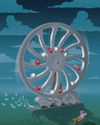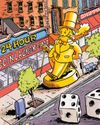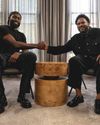
We had a group of friends over for dinner the other day, and the conversation turned to work, as it sometimes does. “I can’t wait to go back to the office,” said one friend, who works at a technology company. “No way,” said another, who works at a midsize law firm. “I’ll quit if they make me go back.”
“Well,” piped in a friend who leads a customer experience team, “I think what we really need is flexibility. I’m exhausted. My team is exhausted. I know our customers can tell, and it’s starting to hurt the business.”
Our friends around the table nodded. This, we realized, was the real stakes of the debate. People have spent the past year and a half arguing over whether remote work would remain permanent, but that has largely ignored a more existential question. This isn’t just an issue of how people work—it’s that the way people work impacts their customers, and whether those customers stay loyal.
We are two former CMOs for very different organizations— Eric has overseen marketing at consumer-facing companies such as Bonobos, and Cathy for localities such as the Las Vegas Convention and Visitors Authority. We understand the complexity that surrounds brand perception, and we believe that the health of a company’s internal culture is one of the most important factors. This should add a new dynamic to the conversation we’re all having about work—because the decisions companies make today will define their culture, and therefore their relationship with their customers, for years to come.
هذه القصة مأخوذة من طبعة September 2021 من Entrepreneur.
ابدأ النسخة التجريبية المجانية من Magzter GOLD لمدة 7 أيام للوصول إلى آلاف القصص المتميزة المنسقة وأكثر من 9,000 مجلة وصحيفة.
بالفعل مشترك ? تسجيل الدخول
هذه القصة مأخوذة من طبعة September 2021 من Entrepreneur.
ابدأ النسخة التجريبية المجانية من Magzter GOLD لمدة 7 أيام للوصول إلى آلاف القصص المتميزة المنسقة وأكثر من 9,000 مجلة وصحيفة.
بالفعل مشترك? تسجيل الدخول

How to Succeed With Gen Z Workers
People often say that younger employees are different. But are they? We asked six business leaders what they've learned, and how their teams thrive.

There's No Perfect Answer
I worked the same job for 19 years. I hated it, but it paid the bills. Then, in 2017, I entertained an exciting but terrifying question: Could I be an entrepreneur? I wasn't sure, so I needed something that felt like a guarantee. I searched for signs that would feel like a big, clear \"yes!\" Instead, what I found was a tarot card deck.

10 HOTTEST TRENDS for 2025
Want to buy a brand that buzzes? Here's what to know.

BUILD YOUR MONEY MACHINE
A franchise isn't just a franchise. It should be a Money Machine, creating profit even while you're out of the office. Here's how.

The Top Franchises for Veterans
Are you a military vet looking to become a franchisee, or just want to support a brand that supports the troops? Check out these 150 brands.

20 LEADERS WHO ARE DEFINING ENTREPRENEURSHIP TODAY
In a year of disruption, we wanted to know: Whose work will define the years to come? We reviewed hundreds of names and picked 20 leaders across a range of industries and sizes. Meet them on the following pages, and see what it takes to thrive in 2025 and beyond.

How to Become a Main Street Millionaire
It started when I bought one little laundromat. Now I have a whole portfolio of small local businesses that bring in tens of millions in revenue a year. Here's why following my playbook could be your ticket to financial freedom-and saving America's local small businesses.

Want to Better Serve Your Clients? Become Them.
As a designer for brands, starting my own product company gave me a dose of humilityand it changed the way I relate to clients.

I've Been a Publicist for 17 Years.Don't Hire Me.
Entrepreneurs often think they need PR. Most don't. Here's why you're probably better off not hiring someone like me.

The CEO's Advice to the MVP
Kickstarter CEO Everette Taylor knows the formula for a successful launch. NBA champ Jaylen Brown recently launched a shoe and athleisure brand. They have a lot to teach each other.